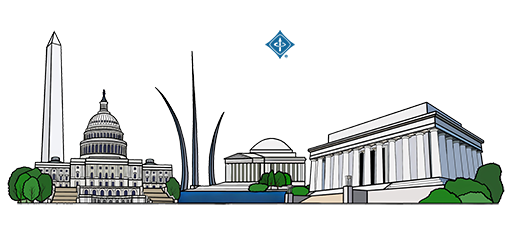ICDM 2025 Workshop • November 14, 2025

About the Workshop
Welcome to the Graph-Augmented LLMs (GaLM): Bridging Language and Structured Knowledge Workshop, taking place on November 12, 2025! This event brings together advanced graph machine learning, LLMs research and practical industrial applications. Our GaLM workshop explores the synergistic convergence of LLMs and graph-based methodologies and its applications with its transformative potential. This integration facilitates advancements in areas such as enhanced reasoning, improved contextual understanding, and robust generalization. We aim to foster discussions on leveraging Graph Neural Networks (GNNs) and graph representation learning to augment LLMs, as well as investigating the application of federated learning and unlearning techniques to address privacy and ethical concerns in this rapidly evolving field. This workshop aims to foster discussions on how graph structures can empower LLMs to achieve improved reasoning, knowledge integration, and data privacy in diverse applications, including but not limited to biomedical, environmental and social-economic systems, with highly structured knowledge.
Call for Papers
The aim of this workshop is to foster discussion around the emerging role of LLMs utilising graph data and computing techniques to enhance LLM capabilities and conversely, vice versa. We will invite original and unpublished research contributions to GaLM in relevant subjects, including, but not limited to:
- Data cleaning, integration, and augmentation with graph-based LLMs
- Graph-enhanced LLM architectures
- LLMs for graph understanding and generation
- LLM-driven graph processing
- Multimodal graph-LLM integration
- Explainability, provenance, security, privacy, benchmarking for graph-based LLMs
- Real-world applications of graph-enhanced LLMs in domains such as healthcare, finance, and social media
Paper Submission: Two types of submissions are invited: full papers (max 10 pages, inc. bibliography) describing mature work, and short papers (max 6 pages, inc. bibliography) describing work-in-progress or case studies. The paper submission must follow the IEEE double-column format as per the IEEE ICDM main conference format guidelines.
Submitted papers will be peer-reviewed and selected on the basis of these reviews. Accepted papers will be presented at the workshop and published in the workshop proceedings.
Submission Link: https://wi-lab.com/cyberchair/
Important Dates:
- Workshop papers submission: September 5, 2025
- Workshop papers notification deadline: September 19, 2025
- Early Bird Registration deadline: September 24, 2025
- Camera-ready deadline: September 25, 2025
- Workshop date: Friday 14th November, 2025
Deadlines refer to 23:59 (11:59pm) in the AoE (Anywhere on Earth) time zone.
Publication Info:
Accepted papers will be included in the ICDM Workshop Proceedings (separate from ICDM Main Conference Proceedings), and each workshop paper requires a full registration. Meanwhile, duplicate submissions of the same paper to more than one ICDM workshop are forbidden.
Keynote
Pan Li, Assistant Professor
School of Electrical and Computer Engineering, Georgia Tech
Talk: Beyond the Sequence: Challenges and Opportunities in Integrating Graphs and LLMs
Abstract: Large Language Models (LLMs) have demonstrated remarkable capabilities in processing and generating sequential text. However, real-world information such as scientific knowledge and enterprise data is rarely a flat sequence; it is a graph of complex relationships. This fundamental mismatch limits an LLM's ability to perform deep relational reasoning, ground its outputs in factual knowledge, and operate safely on sensitive, interconnected data.
This talk will explore the key opportunities and critical challenges at the new frontier of graphs and LLMs. We will first discuss the opportunities, exploring novel architectures that make LLMs natively "graph-aware" moving beyond simply linearizing graph data and the application of LLMs as powerful, foundational reasoning engines on graph-structured data.
We will then turn to the critical challenges. These include protecting sensitive graph data with formal privacy guarantees when interacting with LLMs, and leveraging graph-based approaches to analyze LLM internal knowledge and ensure their trustworthiness.
Workshop Schedule
Location: Massachusetts, Date: Friday 14th November
10:30–10:35 Steve Huntsman — Introductory Remarks
10:35–11:35 Pan Li — Keynote
11:35 - 11:50 Presentation: Benchmarking Graph Construction by Large Language Models for Coherence-Driven Inference ( Steve Huntsman (Cynnovative), Jewell Thomas ( Cynnovative )
11:50–12:05 Presentation: NPC-TAG: Node Prompts for Classification on Text Attributed Graphs with LLMs ( Uras Varolgunes (New Jersey Institute of Technology, USA), Mengnan Du (New Jersey Institute of Technology, USA), Dantong Yu (New Jersey Institute of Technology, USA) )
12:05–12:20 Presentation: DetoxNet: Toxicity Identification Using LLMs and Understanding Its Drug-Origin for Model Fairness ( Karukriti Ghosh (Indian Institute of Technology Guwahati, India), Chiranjib Sur (Indian Institute of Technology Guwahati, India) )
12:20–12:30 Presentation: Reexamining Representativeness of TTD for Urban Traffic Carbon Emissions Based on Spatiotemporal Comparative Analysis with CVTD ( Zifan Wang (Dalian Maritime University, China), Yi Zuo (Dalian Maritime University, China ))
Organizers
- Amit Kumar Jaiswal, Indian Institute of Technology (BHU) Varanasi, India
- Benyou Wang, The Chinese University of Hong Kong, Shenzhen, China
- Prayag Tiwari, Halmstad University, Sweden
- Qiuchi Li, University of Copenhagen, Denmark
- Ruchir Gupta, Indian Institute of Technology (BHU) Varanasi, India
- Shandar Ahmad, Jawaharlal Nehru University, India
- Steve Huntsman, Cynnovative, USA
Program Committee
- Alioune Ngom, University of Windsor, Canada
-
Hannah Sansford, University of Bristol, United Kingdom
-
Hermina Petric Maretic, Amazon, United Kingdom
-
Keigo Sakurai, Hokkaido University, Japan
-
Madhu Chetty, Federation University, Australia
-
Sandeep Kumar, Indian Institute of Technology Delhi, India
-
Sunil Gupta, Deakin University, Australia
-
Xingwei Tan, University of Sheffield, United Kingdom